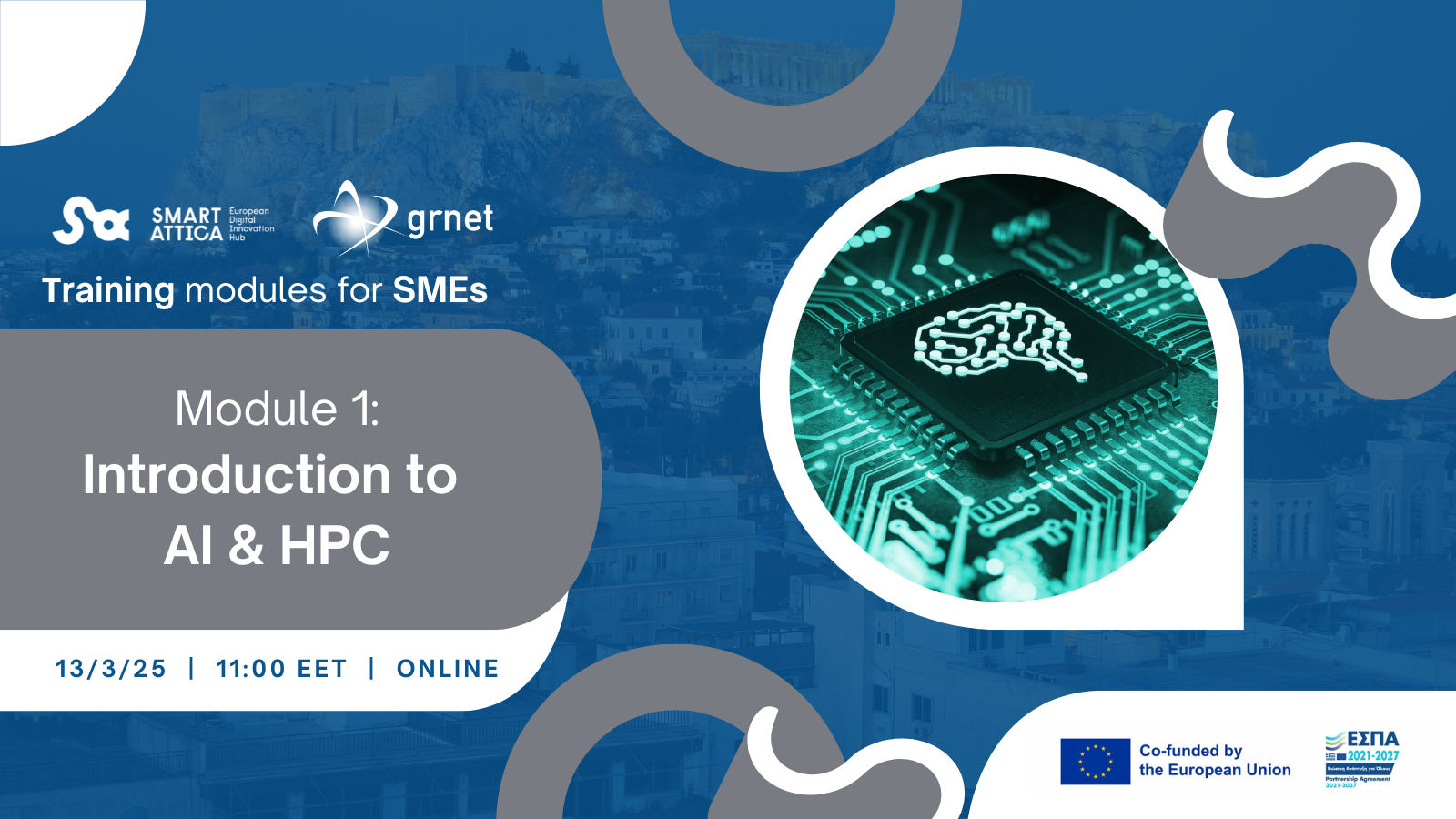Τraining modules for SMEs - Module 1 "Introduction to Artificial Intelligence and High-Performance Computing"


GRNET announced, in the context of SmartAttica EDIH (European Digital Innovation Hub), the 1st Module of Τraining modules for SMEs with the subject "Introduction to Artificial Intelligence and High-Performance Computing", that took place online on March 13th, 2025.
Date: March 13th, 2025, at 11:00 EET
Location: Online via Zoom
Presentation Languages: Greek
Audience:
- SME owners and managers who want to learn how AI and HPC can aid the digital transformation of their company
- Professionals in software development, data science, engineering, and related fields.
- Industry practitioners interested in AI and HPC applications.
Description: This seminar provided a comprehensive introduction to Artificial Intelligence (AI) and High-Performance Computing (HPC). Participants explored the fundamentals of AI, including its overarching goals, historical milestones, and societal impacts, before examining the integral role of HPC in accelerating AI innovations. The course also covered ways to access HPC resources, emphasizing practical applications, parallel processing, and the synergy between AI and HPC in solving complex real-world problems.
Learning Objectives:
- Understand the historical evolution and current scope of AI and its subfields.
- Grasp the core principles of HPC and its technological drivers.
- Analyze the role of HPC in enhancing AI capabilities and applications.
- Learn about the process and requirements for accessing HPC resources.
- Explore real-world applications and future advancements at the intersection of AI and HPC.
Prerequisites:
- Basic familiarity with technology concepts, such as using computers and software applications.
- Understanding of general business processes and challenges.
- Interest in how new technologies can improve efficiency and innovation.
Note: Please enter your institutional/corporate email when registering.
The project is co-funded by the European Union. Views and opinions expressed are however those of the author(s) only and do not necessarily reflect those of the European Union or the European Commission. Neither the European Union nor the granting authority can be held responsible for them.